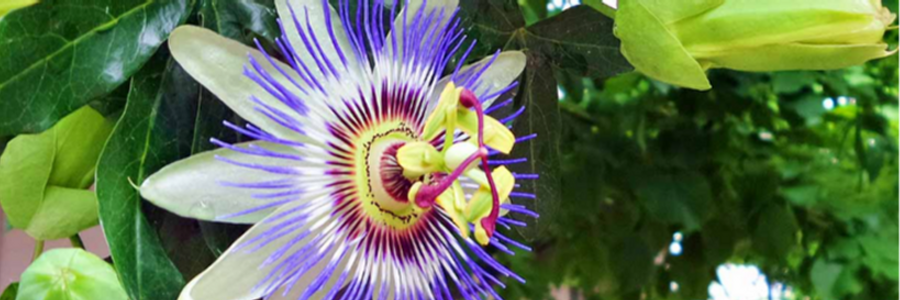

vandals
i miss the certainty of us.
the way that we carved our names in picnic tables,
mementos of the defiant proclamations
that we were there, we existed,
we lived loud enough to leave
parts of ourselves behind.
i still marvel at every line etched
somewhere that it shouldn't be.
in the bathroom stalls,
the worn park benches,
the railing of a bridge
overlooking a bustling freeway.
every one of them a piece
of the person who marked it.
the optimistic permanence
of the letters we leave behind.
Up on the Mountain
The mist shrouded the mountain like a snake that is about to squeeze its prey
At this place, far away from human civilization, I found my nirvana—
fresh air, fresh view, and fresh climb
Trees stretched their fingers towards the azure sky while bees and flies
circled around their trunks, always searching for something,
maybe blossoms that never grew on the branches
I too, am searching for something...
Peace and serenity
Darting around in circles, the swallows performed gymnastics as they rushed upwards, plunged down in neat swoops, and then spiraled into the air
Grey-headed bullfinches sat unperturbedly on flowering bushes and fruit-laden trees
as rain lightly licked their feathers
A bird hopped on its feet and looked at me with curious, black eyes
I stood there, unmoving
A straw-thatched house perched on a grassy slope, its door ajar as if inviting me in From the west, a puff of wind lightly tingled the straw on the roof and dipped its fingers in the sluggish river below
Sheltered by lush plants and friendly animals, I even forgot that this was a tourist site—it was a comfortable home for me
However, my reverie was broken when my mother
and some crazy monkeys stepped in my way
“Smile!” my mother yelled to me as she snapped a picture
of me gaping at the mountain
“Oh mom, you broke the silence!” I complained
“We’re going down the mountain anyway,” she replied
As I descended, I took one last look at the startling Giotto-blue sky
and the swallows that dotted it
But before my we reached the bottom, several monkeys blocked the way
One monkey grabbed my leg and hugged it as if it were a precious piece of banana
Another monkey approached and reached for my floral scarf
I was aware that Mom was probably saving this memory inside her camera
As I detangled out of the monkeys’ reaches, I realized that
I was actually enjoying their presence—
that was until one jumped on my back and tried to rip my hair out
And I also realized that my water bottle in my backpack was gone
As I veered off into the craziness that represents my world,
I stole a moment to just breathe,
took in the magnificent view,
and found peace to take with me
But even with the flowers, trees, and other parts of nature
that I feverishly love so much,
from the safe haven of my backyard to the green spaces of the park,
I felt at peace on this mountain
I rested on the rocky slope overlooking the mountain,
able to gaze out much farther and stand much taller than I typically can
I enjoyed the rough climb upwards because at the apex
I could survey what looked like the whole world
On that mountain, I realized that what captured my heart about the climb is that once I reached my destination, I became part of Nature—
I was in the clouds,
the river flowing below,
the ghostly mist,
the twittering birds,
and the playful monkeys
Scattered
Drawing ever closer to the
Crematory, my hands
Shook and quaked,
My stomach tightened,
My eyes watered, and
My mind—raced
With images of babies
Engulfed in those
Infernal flames, of
Innocence gripped in
The hands of evil.
My mother, beside me,
Was reticent, for once.
Her face was shrunken
And pained,
Wrecked with
Grief,
Disbelief,
And
Remembrance.
Suddenly, there were
Only a few steps
Before I reached
The pit of doom.
Three more steps.
Two more.
Alas, one more...
I thought of
My little garden.
The passion fruit flowers
Thrived heartily
With everything
In place.
Now, my
Passion fruit flowers
Shriveled up,
My family torn apart,
And my customs
And beliefs all deprived
Of
My bygone days spent
Poring over
Music scores,
Playing on the
Piano,
The giggling and chatting at
Marketplaces with
My friends,
The stately
Family dinners,
And my dream
To become a professional
Pianist
Were all swept
Away.
Inside of me, it was
As if the "merry stream"
That ran
Through was frozen
Or parched, never
Moving again.
Slowly, I forced
My mind to shut
Out the noise of
Our trampling,
The noise of people
Dying, of the
Fiery pit, of
My beating
Heart
And just
Feel
Nothingness,
As if to embrace
Death
Once and for all.
All too soon,
I felt, smelled,
Heard, and
Tasted
Nothingness.

